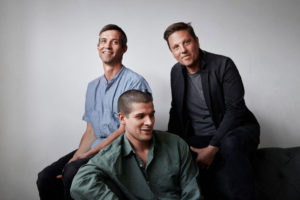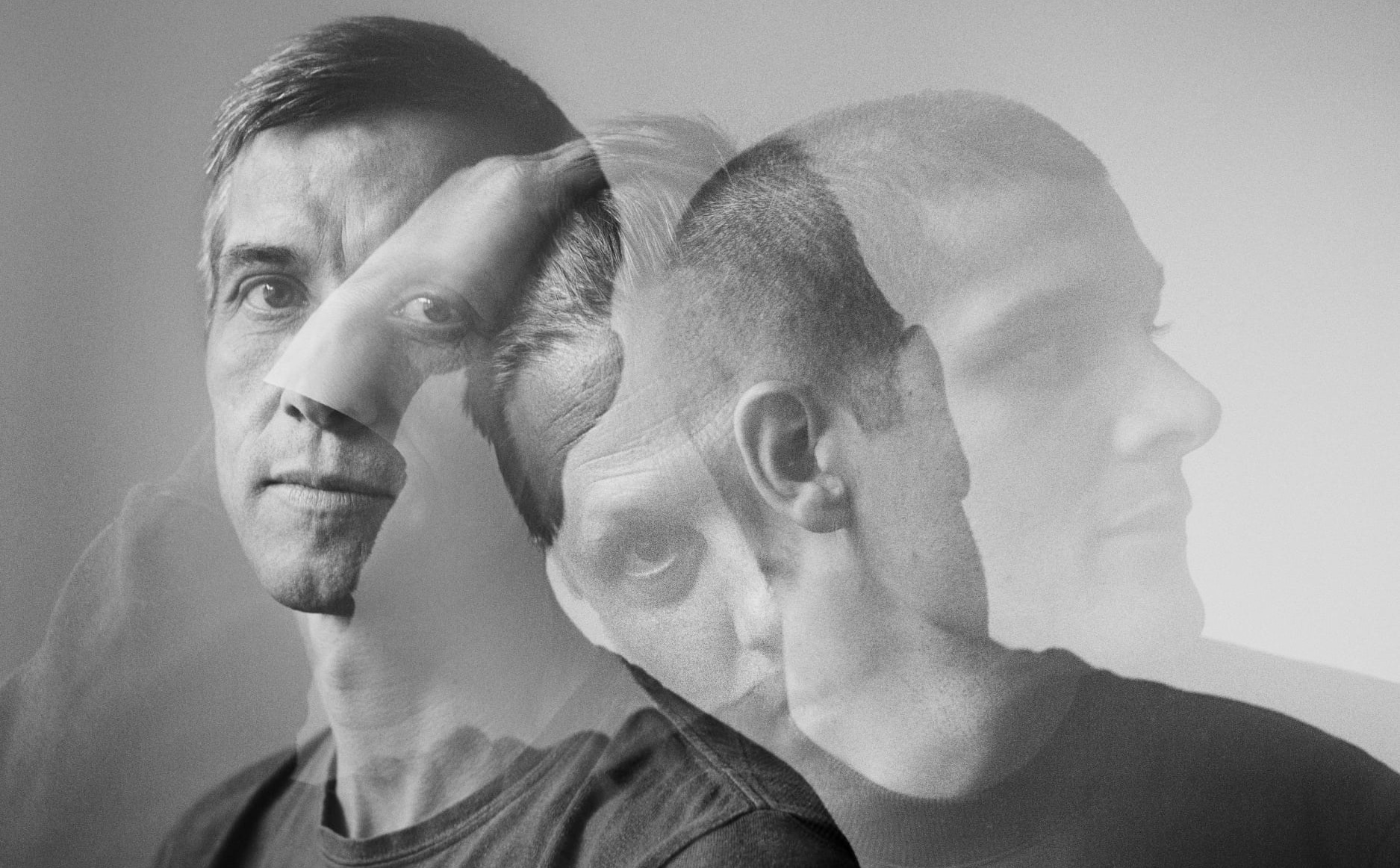There is a creative and collaborative place some artists go to when their bands break up or slow down. Many a once-well-known musician now resides in this space where they write amazing songs for high-profile artists (see: Anthony Rossomando of The Libertines, Andrew Wyatt of Miike Snow, Ryan Tedder of OneRepublic, or Jack Antonoff of fun.). While the performing artists do all the public-facing parts—touring, appearances, social media—the artists-turned-songwriters-and-producers stay home and have a normal, creative life. All the benefits, none of the drawbacks.
This special place is where it’s assumed Henry Binns and Sam Hardaker of Zero 7 had emigrated to. After all, over the course of four albums in the 2000s, they gave us such unforgettable songs as “In the Waiting Line,” “Destiny,” “Today” and “Warm Sound,” bringing now-famous vocalists and songwriters like Sia and José González to the public’s attention and putting together a live experience that generated a sense of community to their fans worldwide. Binns and Hardaker were primed to shift to the land of songwriters and producers.
“Not at all,” assures Binns from his home in Somerset’s English countryside. “We’d love to try and do that stuff, but the music that [Hardaker] and I do only ever works for us. We’ve never written a single, ever. It’s more of a struggle than that. We rely on singers who can write, like Sia, like José, like Mozez.”
If it felt as though Zero 7 were omnipresent in the 2000s, that’s because they were. They released albums every couple of years. Their music appeared on the soundtracks to period-defining films and TV shows like Garden State and Six Feet Under. They toured often and extensively, with bigger and bigger production every time, even hitting the Hollywood Bowl with Gotan Project and Matthew Herbert.
“It’s a classic old story,” says Binns. “By the end of the last tour, we felt creatively exhausted. You don’t have time to think about what you really want to do and be discerning about it. You could never tell whether you were shit because every album you’re selling less and less—loads less—which is a bummer. We’re not writing to make money per se, but it is a certain barometer of whether you’re doing well. That was quite a difficult thing to go through.”
By the end of the decade, Zero 7’s record deal was over, which put a natural pause in their moves. Says Binns, “Not having the weight of the record company bearing down on us was a huge change. Up until that point, you’re always thinking you’ve got to do another album. Not having that anymore is really refreshing. You’re able to remember what’s good about music and what you both like. It takes a long time to remember that. It’s important to go back to the beginning. That sounds dreadfully cliché, but that’s how it goes.”
“When you’re in the room together, decisions happen fast and nobody gets bummed. If [Hardaker] says, ‘I’m not sure about that,’ over email, it takes me a bottle of wine and two Valium to read that. There’s just something about being in a room together. You’ve got to see the whites of the eyes.”
This is not to say that Zero 7 haven’t been making the effort since the release of their last full-length, Yeah Ghost in 2009. They live in different cities, with Hardaker remaining in London, but they both have home studios. They don’t get together often, which hinders their flow, and working remotely has detrimental mental effects—not just at the present time, but for as long as the two have not lived in the same place. “When you’re in the room together, decisions happen fast and nobody gets bummed,” says Binns. “If [Hardaker] says, ‘I’m not sure about that,’ over email, it takes me a bottle of wine and two Valium to read that. There’s just something about being in a room together. You’ve got to see the whites of the eyes.”
Still, Zero 7 have had a steady string of EP and single releases, none of which moved the needle as much as their prior work had. “We put out singles when we felt they were ready,” Binns says. “That sounds very laissez-faire, meanwhile, money is going terrible. When we stopped touring, the money stopped coming in, and you’re broke within six months. I didn’t realize what it was like to be skint. I had moments where I thought, ‘I’m out of this.’ Then I would think to myself, ‘What else are you going to do? Are you going to become a chef? Of course you’re bloody not. How are you going to do that?’ I did a bit of painting and decorating. It was good to have a job that you could finish and get paid and go to the pub.

“Once you start thinking with dollar signs,” he continues, “you’ve had it. Your confidence is eroded, your decision making is gone and so is your ability to think, ‘Is this good?’ Once you start saying, ‘It’s good, isn’t it?’ You have had it, because it’s probably not very good. Confidence comes from a still and chilled-out place, not from a desperate place.”
While there’s no record company pressure on Binns and Hardaker, the unintentional pressure they put on themselves is unavoidable. Enough time has passed that the nostalgia factor has kept their streaming numbers up, and they have finally come upon a collaborator who is a perfect match for them, Lou Stone, who’s featured on all four songs of their new EP, Shadows.
The EP has all the feel-good, downtempo hallmarks of Zero 7 with the addition of Stone’s singer/songwriter sensibility. Stone’s voice is one of the connective threads of these songs, but it also has a malleable quality that wraps itself around the varied styles of Shadows. He slips and slides over the polished strings of the shimmering title track and taps into his falsetto for the quiet and understated “Outline.” On “After the Fall” he channels Chris Martin and Thom Yorke in turns, giving a bite to the song’s sweeping movements, and he pulls out all the heartbreak stops on the plucked bass and cheeky guitar of “Take My Hand.”
“Once you start thinking with dollar signs, you’ve had it. Your confidence is eroded, your decision making is gone and so is your ability to think, ‘Is this good?’”
“We are not blue chip pre-chorus songwriters,” says Binns. “For [Hardaker], the notion of sitting in the studio and doing a Zero 7 track on brand is a dirty word, it’s preposterous. But, we’re not capable of doing music outside of it. [Stone] brought his sing-and-play vibes to the table and it sat well with what we were doing. Finding singers is a difficult one. There are so many different stars that have to line up. The reality is, if a singer can write and sound good, they’re already successful because there’s not many of them about.”
The Shadows EP is a return to form, but that doesn’t mean Zero 7 are on the album track—Binns says the idea of that is “too scary.” As he and Hardaker have gotten older, their tastes have become not only stylistically simpler, but what they can both agree on has gotten narrower. At the same time, their creative rollercoaster is never ending. They get on a roll on a Monday, get stuck by Wednesday, get going again by Friday, then do it all over again. “Over the years people have said some pretty profound things to me about our music,” says Binns. “When I was young and arrogant, I brushed it off a little bit. Now I think all the things our music is the soundtrack to is amazing. I still believe in the myth that we’re going to do something better than we did before. It’s torture because inevitably, you don’t, but that’s what keeps me going. You’ve got to show up and keep trying.” FL







